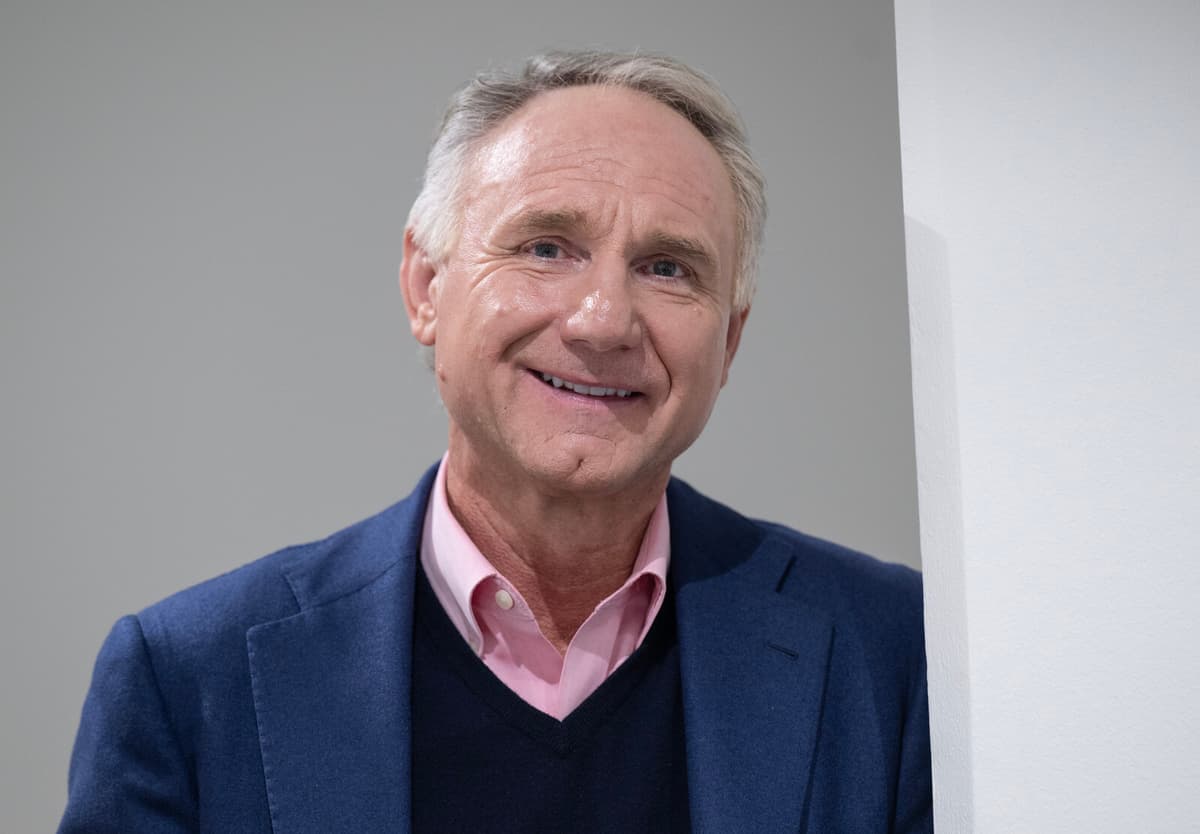Robert Langdon will not be played by Tom Hanks, as in "Da Vinci Code", notes Dan Brown regretfully. Age takes its toll even for a superstar in Hollywood – if there are more seasons of the TV series, Hanks will become too old.
But he is glad that it will be a series this time.
It was an honor to work with Tom Hanks and Ron Howard, but it was an enormous challenge to fit these complicated books into two-hour films, so having eight hours at your disposal is exciting, says Dan Brown to TT.
Gets up at four
True to his routines, the American author has also gotten up at four in the morning this day. Normally, he writes seven days a week, between six and eight hours a day. But now, when "The Final Secret" is being launched around the world, he spends his working hours meeting journalists and readers, like here at the Book Fair in Gothenburg.
It's a bit interesting because you spend eight years alone in the dark, maybe just talking a little to your dog sometimes, and then you suddenly get a spotlight in your face and they say "go out and be fascinating" and then you just have to rub the cobwebs out of your eyes and go out and be fascinating, he says.
And Dan Brown knows how to draw a crowd. In front of an audience consisting of the publisher Jason Kaufman (known from the Robert Langdon books as Jonas Faukman) and his fiancée Judith Pietersen, he entertainingly tells about the work with the nearly 700-page book that takes place in Prague.
Life after death
This time, the professor of symbology is forced into an adventure that starts from human consciousness – and the possibility of life after death. Brutal murders, a missing book that turns established knowledge upside down, a murderer sprung from a fairy tale, and a powerful organization that hunts Langdon, are just a few of the ingredients in the page-turner.
During the work on the book, Dan Brown interviewed both researchers and people who have had near-death experiences. Those conversations changed his own view of death.
If you had asked me eight years ago what happens when we die, I would have said 'Nothing. It just goes black'. I have always thought of it as a computer with the cord cut off. Now I have come out on the other side with a belief that death is not the end, he says, but emphasizes that he is not at all religious.
When I started writing this book, my mother died, who had been sick for several years. Life after this and what happens when we die became much more important since I was so curious. But it was no religious experience, my mother did not talk to me, God did not get in touch, it's just based on scientific facts.
Born: 1964 in Exeter, USA.
Studied music and initially bet on a career as a musician. He has himself described it as having released an album "that three people bought".
Worked as an English teacher when he decided on plan B in life, to write books. In 1998, his debut book "The Palace of Secrets" was published, which was followed by "Angels and Demons", the first in the Robert Langdon series.
Had his breakthrough with "The Da Vinci Code" in 2003. The book has been sold in over 80 million copies and became a major film with Tom Hanks in the role of Robert Langdon.
Brown has since written three more books – in total, his books have been sold in over 250 million copies and translated into 56 languages.
Current with: The new Robert Langdon book "The Final Secret". Next year, Netflix will start filming a TV series based on the book.
... to do research in Prague without drawing attention:
If I do research for something that is very secret, I might wear a hat and glasses.
... why he chose to write about human consciousness:
I love to write about the big topics: AI, Jesus' bloodline, overpopulation. In my opinion, there is no bigger topic than consciousness, it is the lens through which we experience reality and it has enormous significance in our lives.
Advertisement
... if it could be possible to start from a Swedish city in the next Robert Langdon book?
The Stockholm cipher? Anything is possible.
... that he is not always a successful author:
I usually tell young authors that the first three books I wrote did not sell at all, they were total failures. But after the success of "The Da Vinci Code", all three climbed up the bestseller lists around the world without me having to change a single word. So there is an element of luck in book publishing.
Advertisement
... that he is extremely careful with facts, but that there is a scene in "The Final Secret" that is not entirely realistic:
When Robert Langdon jumps from the hotel room window down into the river in Prague, it would have required him to be an Olympic athlete in maximum speed – and even then it would have been difficult. It's fiction and it's okay.






